Have you thought about your teeth in your plans for a life that took a turn for the worse? With so many other vital things on your mind, caring for your teeth might not be your priority.
No matter how well-stocked you are on food, water, and other essential supplies, forgetting your tooth care, you forget something significant. Your teeth have the potential to knock you out of commission.
A broken, decayed, or injured tooth can become a constant source of pain. Pain strong enough to keep you from protecting your house or securing extra food. If an infection develops, a problem tooth can lead to your death.
You must take care of your teeth!
So, what will you do when you can’t go to the store and pick up toothpaste? Or order a dozen toothbrushes in bulk, delivered straight to your door? How will you handle toothaches when there are no dentists available?
Prevention of problem is the absolute best course of action for taking care of your teeth when the SHTF. Your goal is to stop dental problems before they start.
Two main problems cause dental problems in the first place: poor hygiene and inadequate nutrition. Let’s talk about what you can do to keep your teeth clean and healthy, even when your main focus is on survival.
Start with a Healthy Mouth
When the SHTF, you want to start with a healthy mouth. That means while you can still access a dentist, get any cavities or troubled teeth taken care of. Ensure everyone in your house stays current on cleanings.
If you can’t afford dental care and don’t have insurance, look for a low-cost clinic in your area. There are several in my location with a sliding scale based on income or that use student dentists. Your visits might take longer with a student doing the work, but it’ll cost less.
In addition to seeing a dentist, keep your mouth clean between visits. Make sure you’re brushing and flossing to help keep those pearly whites ready for a life-changing event.
Dental Hygiene When the SHTF
What’s your current dental hygiene strategy? If you’re like most people, you brush your teeth twice a day and floss once. It’s a common strategy.
Unfortunately, it relies on several commercial products: dental floss, a toothbrush, and toothpaste. It also requires a bit of water each time you brush.
While you should stock up on each of these items, you will eventually run out.
Then what?
Do you throw your dental hygiene practices out the window and hope for the best? Or do you start thinking a little differently about keeping your teeth clean?
It’s time to learn about some alternatives.
Toothbrush Alternatives
Toothbrushes are relatively new on the dental scene, at least in their modern-day form. The nylon bristles were invented in 1938 by Dupont de Nemours. It took a few years to become popular, but versions of this toothbrush have been used ever since.
Before the modern-day toothbrush, how did people care for their teeth?
With chewing sticks, hog-hair toothbrushes, and rags.
When you can no longer pick up a pack of your favorite toothbrush, you will also turn to one of these methods. Here’s a little bit more information about each.
Chewing Sticks
Used as far back as Ancient Egypt, chewing sticks helped keep teeth clean for thousands of years.
A twig from a tree is selected. One end is chewed on until it splits and frays. Now can be used similarly to a toothbrush. The other end remains solid and is used as a toothpick to get small bits of food out from between teeth.
Some trees work better than others for making chewing sticks. Ideally, you want to select yours from a tree with a large amount of tannins. These will help provide some natural antibacterial and astringent properties to your mouth.
Here are ten trees that make great chewing sticks. You could consider planting these trees now in anticipation of needing their twigs in the future.
- Apple
- Bamboo
- Oak
- Walnut
- Gumtree
- Sassafras
- Olive
- Licorice root
- Mango
- Fig
As a bonus, chewing sticks aren’t the only survival item many of those trees will provide. Select varieties that grow well in your area and that serve a dual-purpose to maximize your survival garden space.
Instead of a chewing stick, you could also chew on a small section of fresh pine needles. That will provide similar results.
Rags
If you have some clean rags, you can use those to keep your teeth clean. Wet the rag and use one of the toothpaste alternatives described below. Then rub your teeth carefully, making sure to get all surfaces of each tooth.
When you’re finished, rinse your mouth well.
Ensure you wash these rags out often, especially if you are dealing with any mouth sores or infections. That will help prevent reinfection.
Toothpaste Alternatives
When you run out of toothpaste, there are several other things you can use as toothpaste. Here are some of the most common:
- Salt
- Baking soda
- Hydrogen peroxide
- Plain water
- Charcoal powder
- Castile soap
- Coconut oil
For the powdered alternatives, you can get your toothbrush wet with a little water and then dip it in. Or you can sprinkle a bit on your damp brush. If you share a larger package with other people, the second method is preferred to avoid sharing germs.
With liquid alternatives, you can swish them around in your mouth, skipping the brush entirely. Or you can use a small amount to dampen your brush and then proceed as usual.
Some of these ingredients, such as baking soda, can be a bit abrasive. If you find yourself experiencing undesired results, consider trying a different alternative.
Oil Pulling
Gaining in popularity, oil pulling is another way to keep your mouth clean. Coconut oil is a common oil used. You take a tablespoon of oil and put it in your mouth.
Then, you swish it around vigorously for 10-15 minutes before spitting it out. That helps clean all the spaces in your mouth that can be hard to reach with traditional cleaning methods.
DIY Emergency Dental Care
Keeping your mouth clean is an essential component of oral care, but it isn’t the only one. Accidents happen, teeth decay, and additional dental care becomes necessary.
It’s essential to have a reliable book for dental care you can pull of the shelf when you need it. Here are two you could investigate:
- Emergency Dentistry Handbook: Providing Dental Care In Disaster Areas, Combat Zones, and Other Austere Environments by Met Clark
- Where There Is No Dentist by Murray Dickson
Spend some time now investing in your knowledge of oral care. Watch some YouTube videos of tooth extractions, so you have a basic understanding of how to proceed if the time ever comes.
Learn how to identify a cavity, an abscessed tooth, and other common dental ailments. You don’t want to come across something new when dealing with all the additional stress from an SHTF scenario.
You should also purchase some dental supplies now and add them to your emergency stores. Here are some basics:
- Dental mirror (to make examining back teeth easier)
- A full set of dental surgery tools
- Cotton balls or gauze pads
- Temporary cavity filler
- Oral pain reliever (with Benzocaine)
- Clove oil
- Pain relievers
- Antibiotics (for infected teeth)
Take time now to start building an emergency dental kit. Learn how to use the supplies and keep an eye on expiration dates for medication.
By preparing now, you can save yourself from a potentially deadly tooth infection when you can’t get to a dentist.
If you’re preparing for a dental emergency after the SHTF, what would you add to my list? Please share your ideas in the comments.


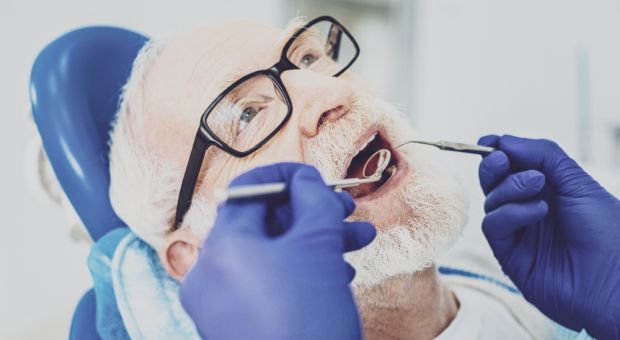

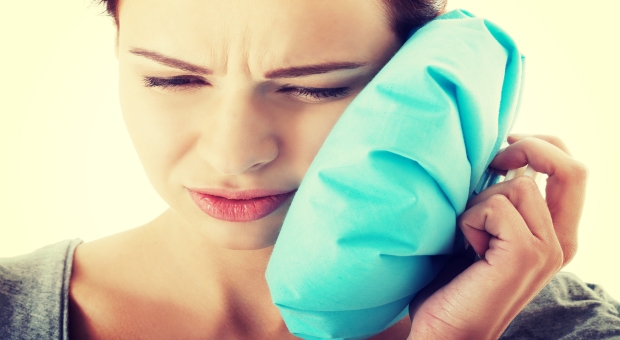
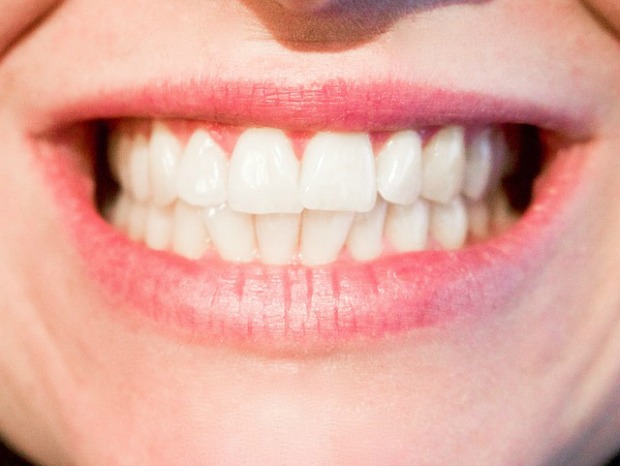
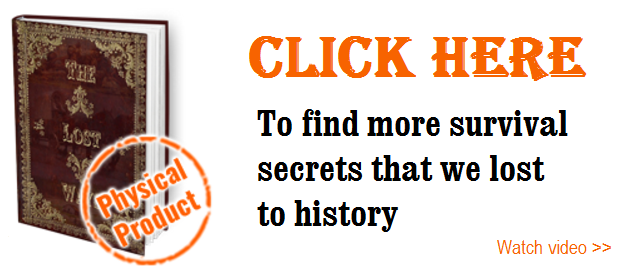
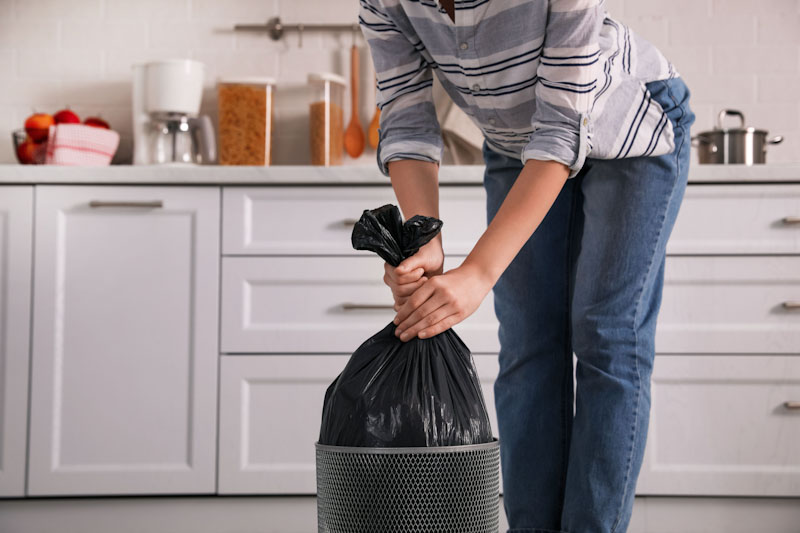

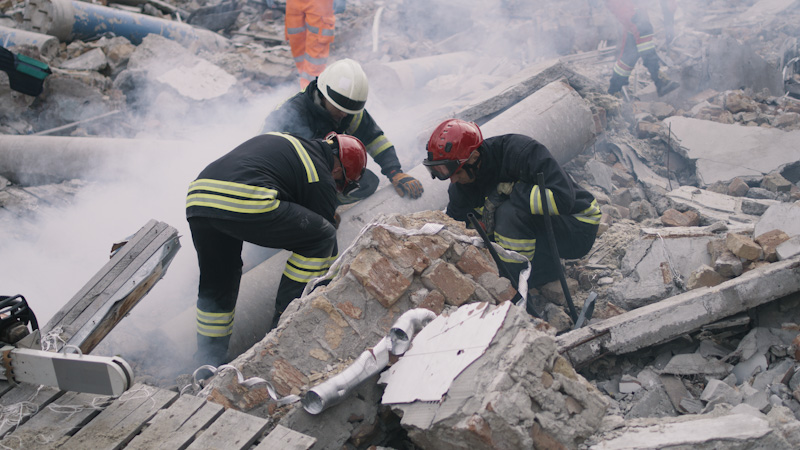
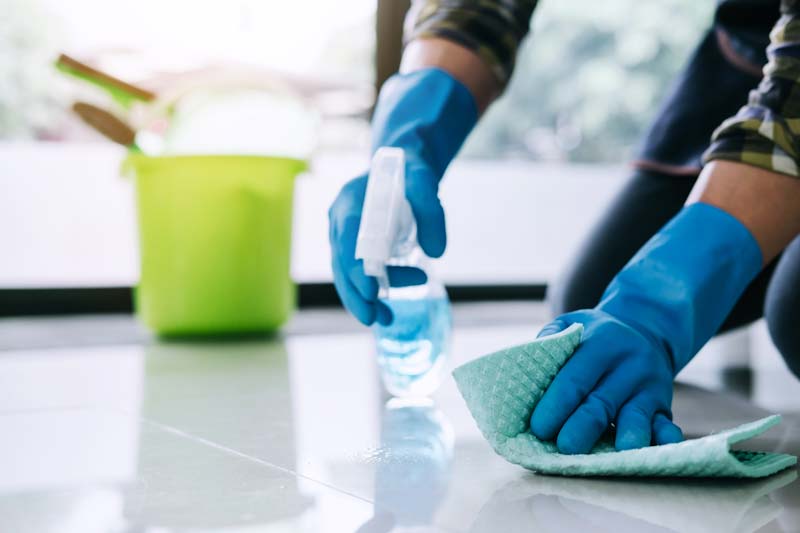

Dale | February 7, 2021
|
An excellent, excellent article! I’;ve often wondered about this subject. Thanks for the info. One suggestion for a substitute dental floss is to simply use strong thread, even a thread removed from a piece of clothing. Another alternative is low-weight (fine) fishing line. It won’t “scrub” the surfaces of your teeth like floss, but it will serve to remove food particles from between the teeth.
Travelin On | February 7, 2021
|
This is a great article and really sad the old ways aren’t still routinely used. They’re sure the safest.
My great grandfather never ever went to a dentist by choice, and only once in his life. He had a daily habit that meant he had all his teeth and they were nice and shiny clean to the day he died at the age of 101. Being as they used wood for both heat and cooking, great grandpa was frequently chopping or carrying wood. After every meal he would go to the woodbox and trim a thin sliver of wood from whatever type of wood they were using and would sit and clean his teeth while the after meal visiting was done. He was 96 years old when one of his grandchildren stupidly believed he was beyond knowing how to care for his teeth and basically against his will hauled him off to a dentist. Fortunately the dentist was an honest dentist. After looking at great granddad’s mouth the Doctor asked him how he took care of his mouths it was clean and cavity free. Great granddad told him how. He looked at great granddad and told him there was nothing his office could do for him, his teeth were in perfect shape and with the kind of care that he was taking of them he didn’t need a dentist until something really went wrong. When it came time to pay for the visit great granddad turned to his granddaughter and told her, this was your idea, you pay.
There are all sorts of nylon or synthetic type aids out there for help in teeth cleaning, but I’ve never forgotten my great granddad’s approach of how he cleaned his teeth after every meal. There was no scoring or scratching of the tooth enamel when using wood as there is with nylon brush bristles and other substances used in toothbrushes today.
Another other potential alternative to toothpaste that I commonly use is a single drop of cinnamon or clove oil. I’m highly allergic to whatever it is that makes soaps sud, and that includes in toothpastes. It’s the quickest way to get a rip roaring mouth infection with open sores for me. The antibiotic/anti-fungal/anti-viral effect of either cinnamon or clove oil has been very effective for me. While I wouldn’t suggest the course I take for everyone,(ONLY BECAUSE IT IS AGAINST GREEDY MEDICAL PROFESSIONAL ADVICE), I don’t go to a dentist unless something really goes wrong (like a broken tooth that gets infected), Going to dentists has proven to have adverse effects on the health of my mouth and so I don’t go, but I have rarely had any teeth problems either. I got conned into going to the dentist every 3 months for a teeth cleaning for about a year and a half, in which time my gums receded drastically. They tried to blame me for it. I stopped going to the dentist and no more gum recession. With some proper care the gums have returned to their normal position for the most part. Medical incompetence is always blamed on the patient.
It used to be that one went to a doctor or a dentist when there was need. The medical professions have become expert at making professional patients out of people rather than telling them how to care for their mouth/body so they don’t need to come back unless something goes wrong. This preventative medicine religion that has gotten going is something else. We have Doctors looking for problems and if they can’t find one they’ll invent one, encouraging people to use substances (drugs, including toothpaste) that are toxic and unhealthy. Ever read the warnings on the tube of toothpaste you use? Makes me shudder to think of putting that in my mouth. Putting something in the mouth to “clean” the mouth, such as toothpaste, that comes from a tube that has the warnings on it that they do sure doesn’t seem smart to me, not with so many blood vessels in the mouth for quick transfer of the toxins to the blood stream. However, to each their own.
Tom MacGyver | February 8, 2021
|
There’s an old adage; “If you want better teeth, pick better parents.” Some people can go their entire lives without a cavity or toothache. If you’re one of them, count yourself truly blessed! Imagine, if you will, a pain in a tooth so bad, the thought of pulling the offending tooth with a pair of Vise Grip pliers is a viable option! The last toothache I had, I ALMOST DID JUST THAT!
YOU DO NOT want to go into TEOTWAWKI without your teeth running on all eight! Get the work done. Get it done NOW.
PLEASE DO have a bunch of toothbrushes and floss in your SHTF kit. They’re CHEAP. They don’t take up much space. Toothpaste doesn’t take up much space either, though as the post says, other things can be used in leu of toothpaste. In a pinch, the toothbrush alone will suffice.
PLEASE DO have an emergency dental kit on hand.
PLEASE DON’T put this stuff off.
Bluetiful Bee | February 11, 2021
|
the alternative of toothbrush cannot harmful??
LP | December 11, 2023
|
I’ve found that turmeric (a natural anti-inflammatory) helps when I have a toothache. It seems to have eliminated the infection the several times I’ve used it.